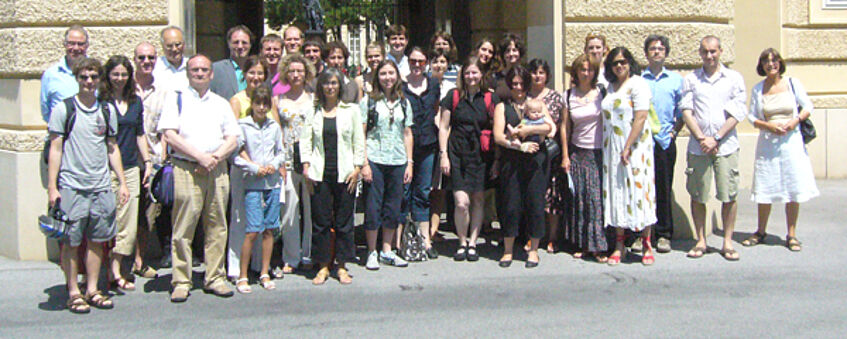USS-SWC 2008 – History and Philosophy of the Biomedical Sciences
The 8th Vienna Summer University was held on June 30–July 11, 2008.
Lecturers
- Rachel A. Ankeny (University of Adelaide, Australia)
- Bernardino Fantini (University of Geneva, Switzerland)
- David Wootton (University of York, United Kingdom)
The field of History and Philosophy of the Biomedical Sciences has, in the recent decade, become a hot spot in historical research and philosophical debate. The increasing place of biomedical sciences in contemporary societies and individual lives has raised many questions concerning the epistemological and practical status of biology and medicine.
The course will deal with some of the fundamental philosophical problems of biomedical sciences, raised by their historical development since the age of the Scientific Revolution of the 17th century to the very contemporary development in biomedicine, biotechnology and medical practices.
Selected topics of historical and philosophical relevance will be covered, which are at the core of present-day debates and have great relevance for bioethical debates and social and political concerns on the role of biology and medicine in our societies. Particular attention will be devoted to some methodological issues and to the necessary link between historical and philosophical inquiries.
The course will be necessarily transdisciplinary and because of its advanced content, general background and introductory material will be distributed to the participants in advance in order to facilitate the discussion and a common reflection on the topics suggested.
Topics
- The epistemological status of medicine
- The Hippocratic tradition, from Hippocrates to the Nineteenth Century
- The origins of scientific medicine (16th-20th centuries)
- The concept of disease: Historical roots and philosophical perspectives
- Causality in biomedical sciences. An historical and epistemological analysis
- The pragmatics of causation in clinical practice
- The philosophical debate on the normal and the pathological
- The role of the case in medical reasoning
- The error in medicine
- From germs to genes: Theories on generation and infection (16th-20th centuries)
- Form, information, and programmes: The rise of the molecular explanation of life and disease
- Moral issues associated with gene therapy
- Darwinian Medicine: How evolution by natural selection can explain health and disease?
- Historical and epistemological issues associated with animal models in biomedical research
- The social and economical determination of health and disease: The McKeown Thesis
- Historical and epistemological issues in Evidence Based Medicine
